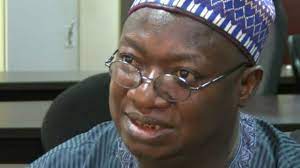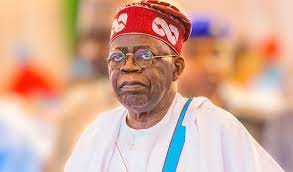
By Nick Dazang
IT started as a chorus of voices. Then it became a litany. The National Security Adviser, Nuhu Ribadu, led the way. He announced at the Chief of Defence Intelligence Annual Conference, 2023 that: ”It is important for you to know that we inherited a difficult situation, literally a bankrupt economy”. He was followed by Senator Adams Oshiomole who declared that President Bola Ahmed Tinubu inherited a “terrible economic situation”.
In quick succession, Governor Chukwuma Soludu of Anambra State, and a former Governor of the Central Bank, CBN, alleged that under President Muhammadu Buhari’s watch, the CBN was printing money illegally. Confirming the insalubrious picture, the Minister of Finance and Co-ordinating Minister of the Economy, Wale Edun, stated that: ”We met a bad economy…” With an air of finality, Governor Oluwaseyi Abiodun Makinde of Oyo State, declared that President Tinubu inherited “a dead economy”.

Just last week, it assumed the proportion of a cacophony. Federal Minister of Works, David Umahi, sang a discordant but upbeat tune, to wit: that despite the financial strain, the President had approved N300 billion for immediate palliative road works across all 36 states of the federation and the Federal Capital Territory, FCT. But before it transforms into a din and a dissonance, what is palpable is that our economy is in dire straits. Even to the uninitiated, the indices are simply horrid. And their impact very harmful to the country’s health.
The prices of petroleum products(petrol, diesel, aviation fuel, etc) have since shot their way through the stratosphere. Their abominably high prices have had adverse consequences for cost of living and other economic activities associated with transportation and manufacturing. Inflation is at 27% and counting. Nigeria continues to get burrowed deep into debt peonage on account of binge borrowing. The Naira, in spite of spirited efforts to shore it up, through additional borrowing and advance sales of crude oil, continues to be buffeted. Not less than 70% of Nigerians live below the poverty line.
Compounding the aforementioned tales of woe are the sensational stories that continue to titillate and animate the social media. Allegations are being bandied about how some business persons, under President Buhari’s watch, assumed favoured statuses, accessing millions of hard currency and at cheaper rates. Some minions of former President Muhammadu Buhari are alleged to have stashed hair-raising amounts in their accounts.
Even though it is possible for the ordinary Nigerian to fathom the parlous state of the economy, it is only fair that he is sufficiently and robustly informed. After all, the democratic system we operate thrives on transparency and accountability. It, therefore, goes against the grain of these values to make a fetish of the economy or to run an opaque system bereft of clarity.
The Bola Tinubu administration is even more obligated to be transparent. Since its advent, it has continued to put in place harsh economic policies which not only impose more hardship on the people but call for more sacrifices and self-abnegation by the people. How can the people be counted to make more sacrifices, to trust that the government is well meaning and to exercise more patience for a better tomorrow when the same government fails to come clean about the state of the economy?
Already, speculations are rife that the Tinubu administration is pussyfooting over disclosing how bad the economy is in order not to be seen to be indicting his predecessor and some of his acolytes. There is no gain saying it that former President Muhammadu Buhari ran one of the most nepotistic and laissez faire administrations in our annals. But even he has warned that he will not countenance being called upon to shield any of his former subordinates/appointees. Besides, we are talking about our commonwealth here.
No one who pillages our common patrimony should be protected or treated as an untouchable. Neither too, should millions of Nigerians go a-sorrowing on account of the avarice or perfidy of some persons, no matter how privileged. More importantly, how do you demand that millions make sacrifices while a few persons, who have lined their pockets with ill-gotten public funds, are allowed to go scot-free and to flaunt such stolen funds sickeningly at their suffering compatriots?
The President is said, by one government official, not to suffer corruption gladly. How do you exude zero tolerance to corruption when you appear to succour persons who have stolen the country blind? Is it not the height of droll logic to go, bowl in hand, begging while some members of your household are luxuriating from money pilfered from the common patrimony?
The President and his handlers have before now touted and flaunted two attributes: that Tinubu has governed a commercial and cosmopolitan state and that he is business savvy. It is trite knowledge, in business parlance, that when you are scouting for investment either by way of a Share Offer or an Initial Public Offer, IPO, that you proceed diligently by publishing or advertising a detailed and lucid State-of-Affair or a Prospectus of that corporate entity.
Such a succinct Prospectus will not only enamour you to keen investors, it will suggest you have a clear vision of where you are headed. If that is the case, and Nigerians are shareholders in the Nigerian project, why is the Tinubu government not forthcoming with our predicament or the diagnosis of same?
Unless the Tinubu administration is tolerant of the excesses of his predecessor, this is the time to come clean. This is the time for his administration to let us know how bad the economy is. It is by so doing that it will elicit the sympathy and support of Nigerians who are already hurting and sorrowing.
- Dazang, former Director of Voter Education at INEC, wrote from Abuja.
- Source: https://www.vanguardngr.com/2023/12/how-bad-is-the-economy/




GIPHY App Key not set. Please check settings